We take a look at how designers can now meet an even wider variety of tastes and budgets, boosting freestanding bath sales
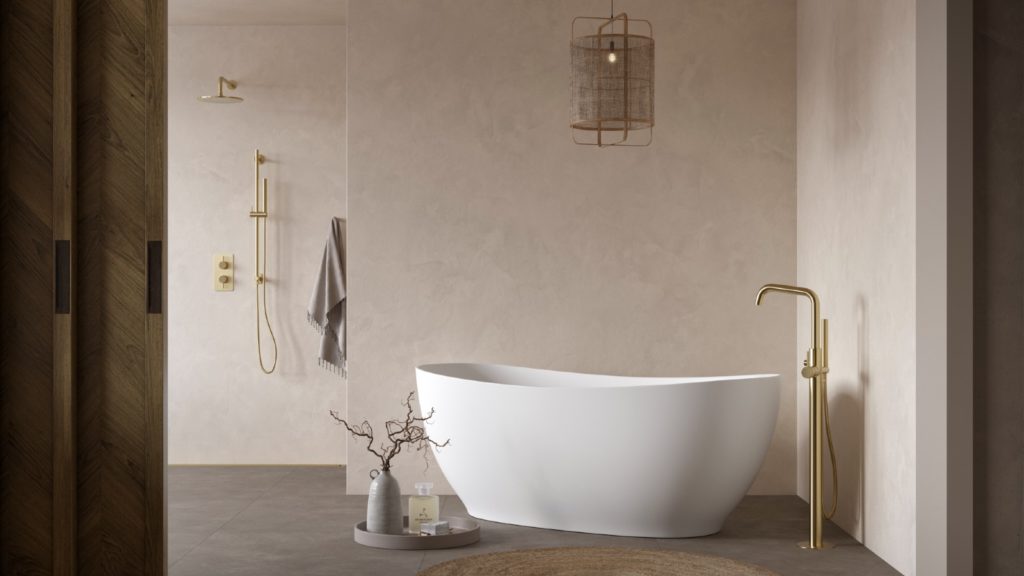
The Siena bath from Adamsez has a 15mm slimline edge, comes in a 1700mm x 800mm size and is available in a range of bespoke outer colour finishes.
With the sofa now the focal point of a living space; similarly, the tub has become the central design feature of a bathroom. And there is no more commanding presence than a freestanding bath.
But it’s not simply about the aesthetics of the space, a freestanding bath offers a luxurious bathing experience to provide a spa-like haven.
Sponsored Video
Product manager from Acquabella Fernado Maceda comments: “Freestanding bathtubs are undergoing a transformation process that has not gone unnoticed by experts and interior design enthusiasts and highlighted as one of the main trends in bathroom design in recent years.
“This resurgence has gone hand-in-hand with the growing concern for the physical and emotional well-being of society, in turn giving rise to the bath-spa style that seeks to create a space of peace and tranquillity.”
Such has been the interest in freestanding bath sales, head of marketing at Utopia Bathrooms Helen Clark adds: “We’ve seen a consistent increase in sales over the last three years, even taking into account the current climate and the impact of COVID.
“Freestanding baths are still the ultimate statement feature in any bathroom and sales of our two models increase steady month by monthy.”
Colour palette
Aided and abetted by the injection of colour, the freestanding bath has sealed its design status in the bathroom space.
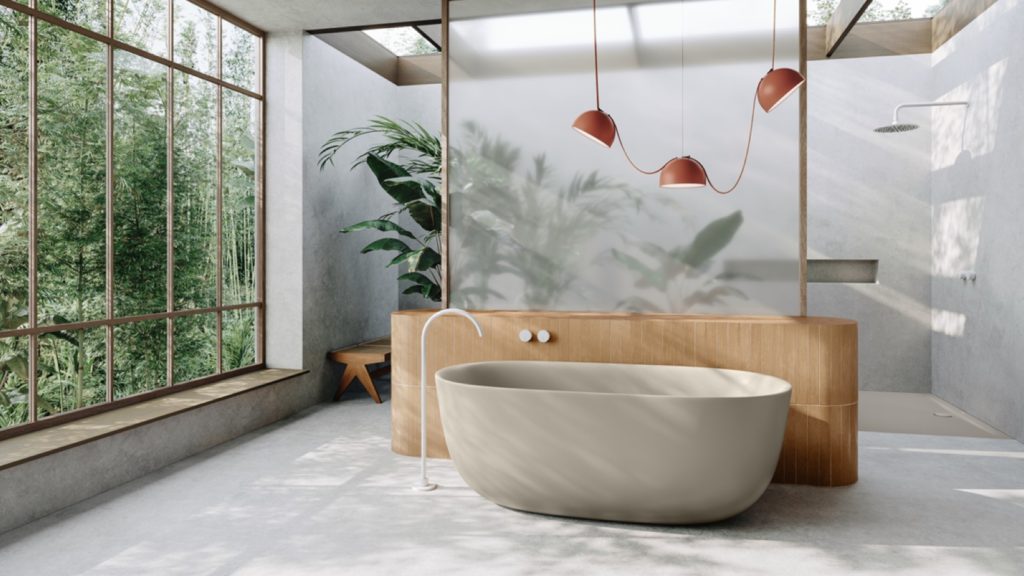
Made from recyclable steel enamel, the Meisterstruck Oyo Duo from Kaldewei is a double-walled bathtub which is available in Alpine White and in a range of Coordinated Colours
The gloss white bath has now been augmented by matt finishes, neutral and natural tones, from warm earthy colours and water inspired palettes, to saturated and richer tones.
Sales and marketing director at RAK Ceramics UK Ben Bryden comments: “We’re seeing a greater use of colour in the bathroom, echoed in bath trends.”
Kaldewei has introduced its MeisterStruck Oyo Duo freestanding bath in Alpine White and a range of hues from its Coordinated Colours Collection.
Whereas Utopia offers selected bath colours matched to its furniture and as part of its Harrogate Collection, Harrison Bathrooms offers custom painted baths which can be matched to any RAL.
Smaller sizes
Of course a freestanding bath often requires space for installation and Helen Clark of Utopia Bathrooms states: “Our retailers report that empty nesters keen to have the luxury of a statement bath but lacking the space in their existing bathrooms are even turning spare bedrooms into large features bathrooms.”
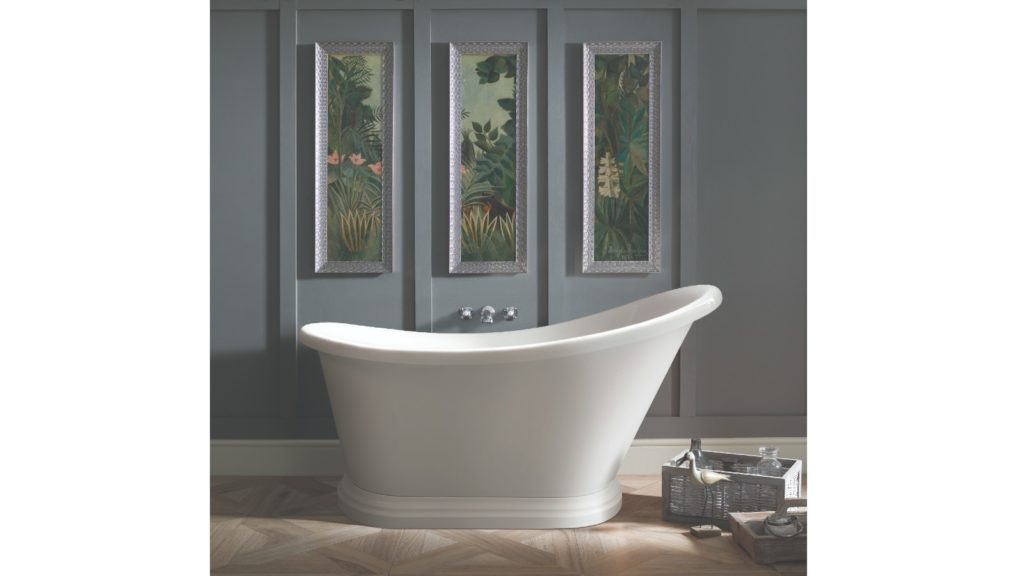
The Penny from BC Designs measures 1360mm in length and has been deisgned for compact spaces
However, the requirement for a large space is changing, as specification and design manager at the Sanipex Group Ashley Sinclair picks up on this: “There was a time when the freestanding bath was very much the preserve of the upper end of the market.
“This is partly due to the size of traditional freestanding baths, which required a generous amount of floor space. However, this is not so much the case today.”
In particular, there are compact sizes surfacing on the market, enabling bathroom designers to explore the use of freestanding baths in spaces previously unable to fit models.
Brand manager of House of Rohl Emma Joyce says manufacturers have worked hard to create smaller models, adding : “Compact freestanding baths are growing in popularity. Victoria + Albert’s five best-selling designs now available in 1500 versions, as they fit into alcoves normally reserved for inset baths and add real luxury to a bathroom.”
And James Harrison, owner of Harrison Bathrooms, adds: “There’s been an introduction of smaller, more compact, freestanding baths with thinner edges. The diameter of acrylic is thinner to give a larger bathing area.
“This means freestanding baths are far more accessible, more affordable, and smaller in size.”
BC Designs is launching a 1360mm slipper bath that will cater for those who desire a freestanding model with limited space. Darren Allison adds: “Compact freestanding models will be an area where we will continue to see growth in sales.”
More materials
However, equally significant to the growth of the freestanding bath market has been the wider availability of models across a broader spectrum of budgets.
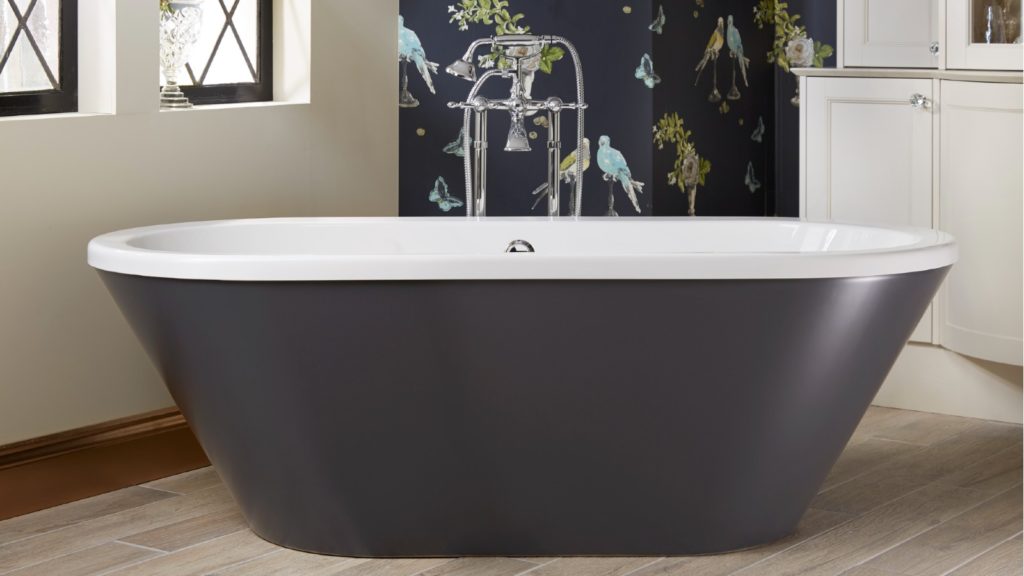
The Sensuelle bath from Utopia is made from triple layer Resinite and is available with a range of painted skirt finishes to match the company’s furniture, such as London Grey (pictured
Once only available for the top-end of the market, a greater variety of material choice and sizes has opened sales to the mid-sector.
Helen Clark of Utopia explains: “Freestanding baths have traditionally been top-end only, largely due to cost but also owning to the fact that larger properties were in the main the only ones that could possibly accommodate them.
“As prices have come down, and indeed as the material that the baths are made from moves from traditional cast iron to rigid acrylic, it’s become an option for the middle market.”
In fact, managing director at BC Designs Darren Allison reports a mid-market bath is his company’s most popular model, adding: “Our freestanding acrylic boat bath – which we consider to be a mid-market product – remains our best-selling model, and we’ve seen an increase in sales of 30%.”
Upward trajectory
Yet that doesn’t mean the premium freestanding bath market is destined to peter away, replaced by mid-market models.
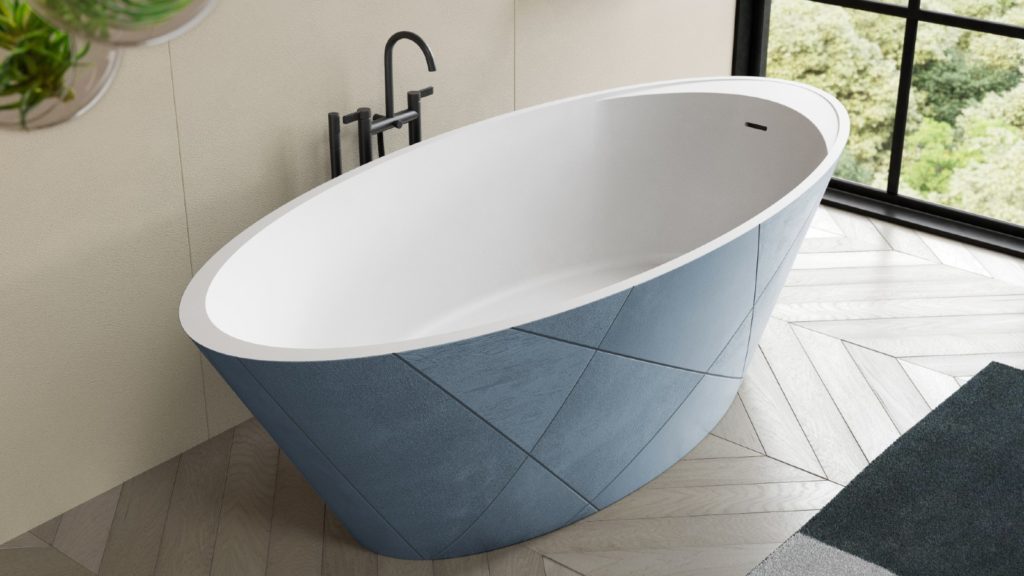
The Opal Quiz freestanding bath from Acquabella, is now available in a duo of finishes. It features three of the company’s textures on the exterior and boasts contrasting inner surface
Darren Allison explains sales haven’t diminished in the luxury sector: “There has also been a huge surge in upper-end products as well, with metal baths driving demand.
“Across the range, we’ve seen an uplift in sales of 50%, compared to mid at 20%.”
In fact, industry experts are confident of an upward trajectory in sales, and a positive outlook for freestanding baths – in fact, some may say a slam dunk!



